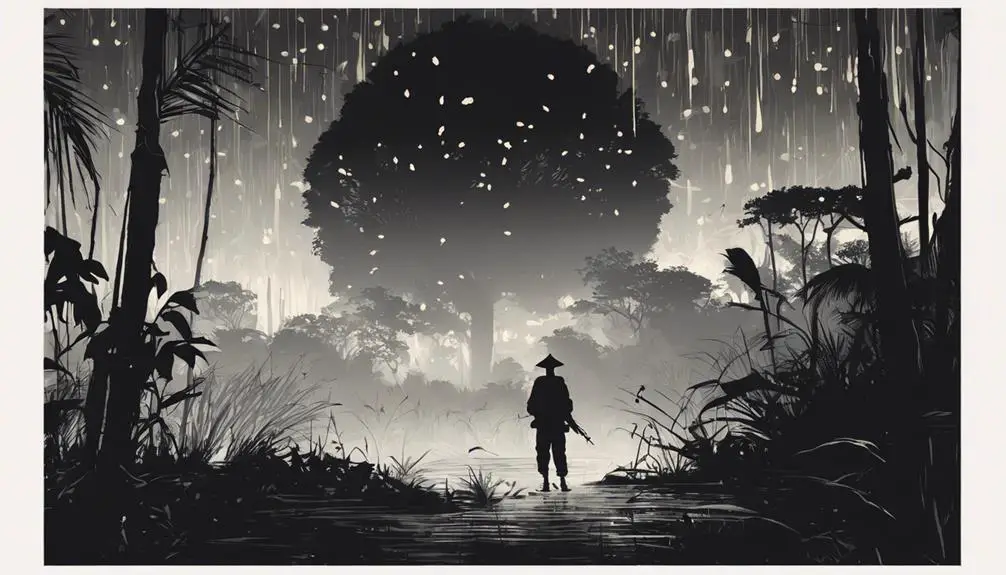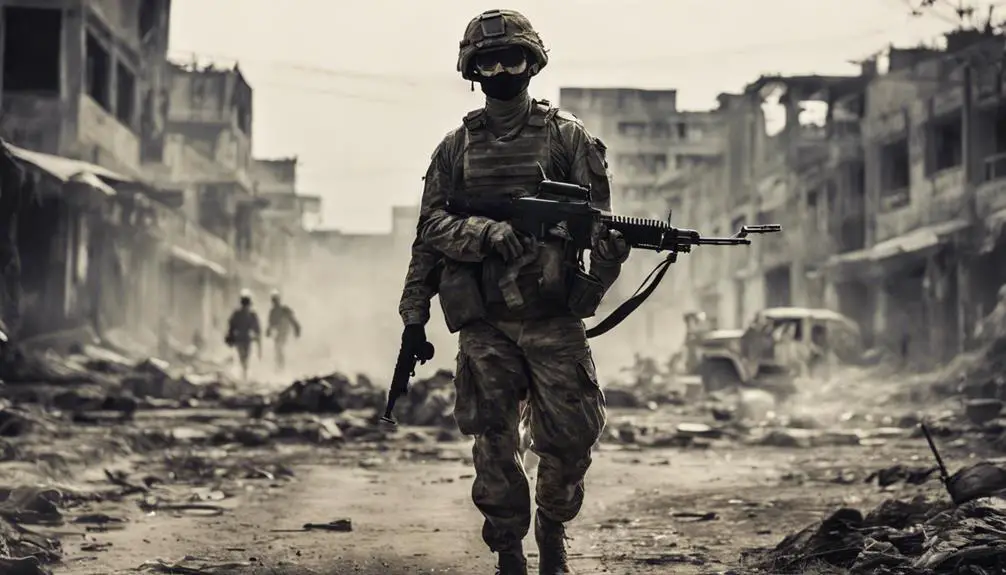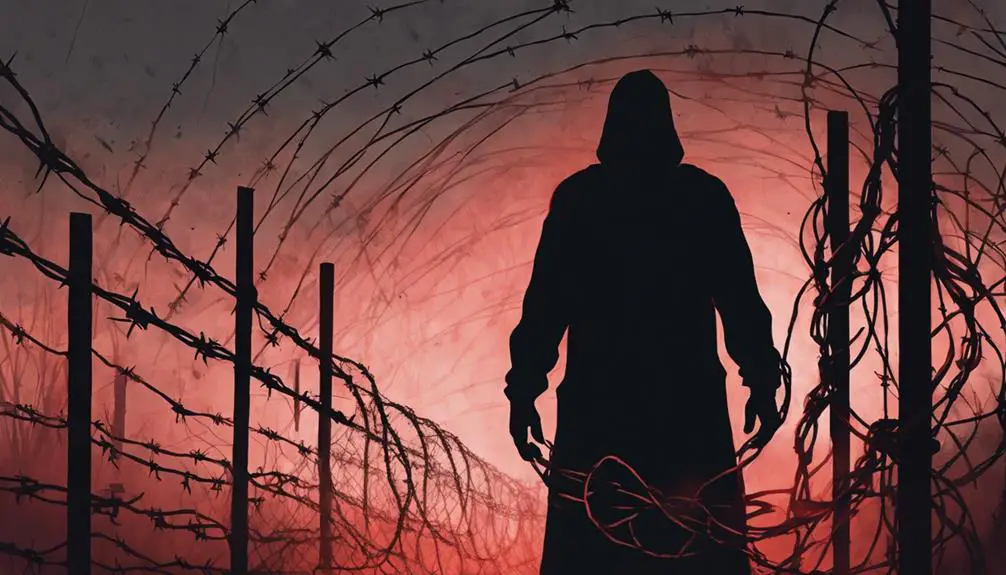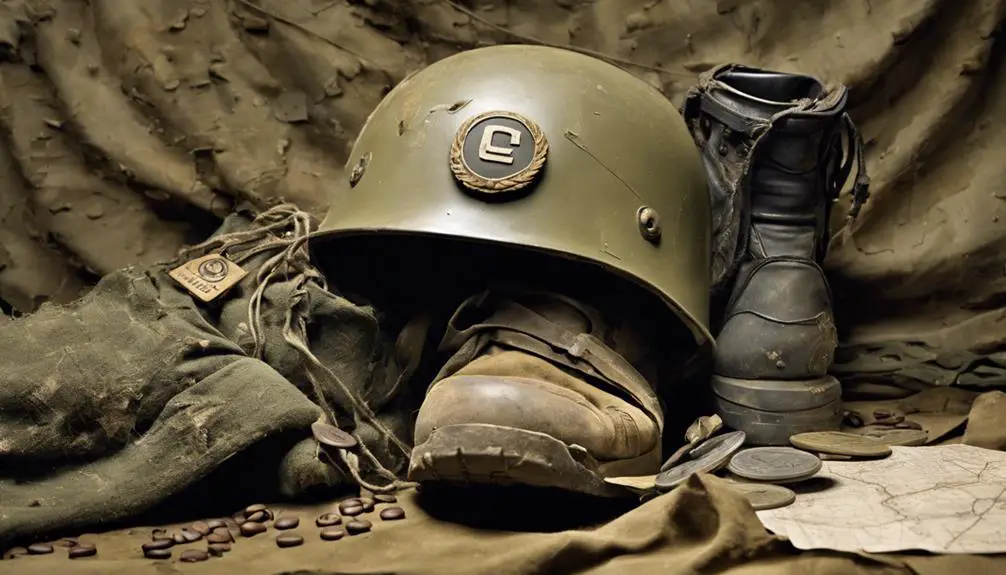You're familiar with the term "Charlie" in military slang, but do you know its origins? During the Vietnam War, "Charlie" emerged as a codename for the Viet Cong, derived from the phonetic alphabet "Victor Charlie." Today, it represents the enemy in modern warfare, used for tactical communication and critical information. As technology advances and combat zones evolve, "Charlie" adapts, serving as a shorthand for hostile forces and geographic locations. You're about to uncover the nuances of this military terminology, and what you'll discover will give you a deeper understanding of the complexities of modern warfare.
Origins of Charlie in Vietnam

During the Vietnam War, American military personnel first used the term 'Charlie' to refer to the Viet Cong, the communist guerrilla fighters who opposed them. You might wonder how this term originated, and what it reveals about Vietnam's tumultuous history. The answer lies in the code origins of military communication.
In the early days of the war, the US military used a phonetic alphabet to clearly communicate letters and numbers over radio transmissions. 'C' was replaced with 'Charlie', 'D' with 'Delta', and so on. When referring to the Viet Cong, military personnel would use 'VC', which was then phonetically spelled out as 'Victor Charlie'. Over time, 'Victor Charlie' was shortened to simply 'Charlie', becoming a ubiquitous term in military slang.
As you explore further into Vietnam's history, it becomes clear that the term 'Charlie' was more than just a convenient shorthand. It represented the faceless, elusive enemy that American soldiers faced in the jungles and villages of Vietnam. The origins of 'Charlie' are a tribute to the ingenuity and adaptability of military communication, as well as the complex, often fraught nature of the Vietnam War.
Evolution of Military Terminology
As you explore further into the world of military communication, you'll find that the terminology used in the Vietnam War was just the beginning of an evolutionary process that has continued to adapt and refine its language over the years. The military lingo has undergone significant changes, driven by the need for efficient communication in diverse operational environments.
The evolution of military terminology is a demonstration of the dynamic nature of language adaptation. Here are some key aspects of this evolution:
- Technological advancements: The introduction of new technologies, such as satellite communications and encryption, has led to the development of new terminology to describe these systems and their applications.
- Operational adaptations: Changes in military doctrine and tactics have required the creation of new terms to describe novel strategies and techniques.
- Cultural exchange: The increasing involvement of international coalition forces has led to the cross-pollination of military terminology, with terms being borrowed and adapted from other languages.
Throughout this process, military terminology has become more nuanced, complex, and specialized, reflecting the growing complexity of modern warfare.
Charlie in Modern Warfare

In the modern battlefield, you'll hear 'Charlie' thrown around to refer to the enemy, a term that has persisted through generations of warfare, adapting to new contexts and technologies. You may have even encountered it in gaming realism, where military simulations and first-person shooters often use the term to add an air of authenticity. But in real-world combat, the significance of 'Charlie' goes beyond mere importance. It's a vital part of tactical communication, allowing soldiers to quickly and efficiently convey critical information about the enemy's position, movement, and intentions.
In modern warfare, 'Charlie' is often used in conjunction with other military slang and abbreviations, such as 'Bravo' for friendly forces or 'Oscar Mike' for 'on the move.' This shorthand language enables soldiers to rapidly share situational awareness, coordinating efforts and responding to threats in real-time.
As military operations continue to evolve, the term 'Charlie' remains an essential component of the battlefield lexicon, facilitating seamless communication and ensuring effective coordination in high-pressure environments.
Code Name in Combat Zones
You'll frequently encounter 'Charlie' as a code name in combat zones, where its brevity and clarity enable swift communication in high-stress environments. This combat alias is often used to designate a specific zone or area of operation, allowing military personnel to quickly convey vital information.
Here are some key aspects of 'Charlie' as a code name in combat zones:
- Zone Designation: 'Charlie' can represent a specific geographic location, such as a checkpoint or a patrol route.
- Combat Alias: The code name 'Charlie' serves as a shorthand way to refer to a particular unit, team, or individual, ensuring secure communication in high-pressure situations.
- Tactical Advantage: Using 'Charlie' as a code name allows military personnel to maintain a tactical advantage, as it enables rapid communication and response times in dynamic combat environments.
The Enemy in Military Speak

When communicating about hostile forces, military personnel often use the term 'Charlie' to refer to the enemy, a convention that has been adopted across various branches and coalitions. You might hear this term in tactical operations, intelligence reports, or even in casual conversations among soldiers.
But what exactly does it mean to classify someone as 'Charlie'? In military speak, the enemy is categorized based on their level of hostility, intentions, and capabilities. This is known as Enemy Classification, where adversaries are profiled and analyzed to understand their motivations and tactics. Adversary Profiling is important in developing effective counter-strategies and anticipating potential threats.
Frequently Asked Questions
Is Charlie Used in Non-Military Contexts or Only in War Zones?
You might wonder if 'Charlie' is confined to war zones. Surprisingly, its cultural significance extends beyond military contexts.
In civilian applications, 'Charlie' is used as a shorthand for 'Victoria' in the NATO phonetic alphabet. It's also a popular given name and a common term in various industries, such as aviation and hospitality.
While its origins are rooted in military slang, 'Charlie' has evolved to have broader, non-military implications.
Is the Term Charlie Only Used for Enemy Forces or Also for Allies?
You might think the term 'Charlie' only refers to enemy forces, but that's not entirely accurate. In military contexts, 'Charlie' can also be used to refer to allies, specifically friendly forces or coalition partners.
This is often referred to as 'Coalition Charlie.' So, when you hear 'Charlie' in a military setting, don't assume it's always the enemy – it could be your own team.
Can Charlie Refer to a Specific Enemy Soldier or Only Collective Forces?
As you explore the nuances of military terminology, you might wonder: can 'charlie' refer to a specific enemy soldier or only collective forces?
In general, 'charlie' is an enemy designation used for categorizing forces, implying a collective group. Typically, it doesn't pinpoint a single soldier. Instead, it's a broad label for opposing forces, making it a force categorization rather than an individual identifier.
Is the Term Charlie Used Universally Across All Military Branches?
As you explore the term 'Charlie,' you're likely wondering: is it used universally across all military branches? Surprisingly, the answer is no. Branch variations exist, with the term being more commonly used in the Army and Marines.
Historical origins can be traced back to the Vietnam War, where 'Victor Charlie' was used to refer to the Viet Cong. While the term has since spread, its usage differs between branches, reflecting their unique cultures and operational environments.
Can Charlie Be Used as a Verb, E.G., "To Charlie" an Enemy Position?
When you wonder if 'charlie' can be used as a verb, you're exploring verbification examples.
In military contexts, 'to charlie' an enemy position might imply disrupting or compromising their tactics. However, this usage isn't commonly accepted or widely employed across military branches.
While 'charlie' as a noun is widely used, its verbification isn't a standard practice. You might use it in informal contexts, but it's not an officially recognized or regulated term.
Conclusion
You've heard the call sign 'Charlie' in military contexts, but do you know its origins? From the Vietnam War to modern combat zones, 'Charlie' has been the cryptic code for the enemy.
Born from the military alphabet, 'Charlie' replaced 'V Victor' to identify the Viet Cong. Today, it's used globally to convey a sense of uncertainty and danger.
In the heat of battle, 'Charlie' is the enemy, an unseen force that demands constant vigilance. Yet, in the stillness of a quiet night, 'Charlie' is a reminder that, in war, the enemy is always just out of sight.







